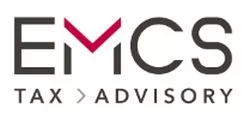EMCS – "we see a distinction between the requirements of regulated entities to those of listed entities"
The Malta Financial Services Authority (MFSA) have earlier this year issued a consultation document with the aim of creating a comprehensive and enforceable corporate governance framework for all entities authorised by the MFSA as well as listed companies1. This document lays out the expectations for good Corporate Governance which would be applicable cross-sectorally.
The present situation is that the main legislative source for Corporate Governance under Maltese Law is the Companies Act, which sets out the types of commercial partnerships available and the applicable requirements for such entities, whereby it establishes the accountabilities of the Board of Directors, the rights of shareholders as well as transparency obligations. The Companies Act is then complemented by three additional documents: [i] the Corporate Governance Guidelines for Public Interest Companies [ii] the Corporate Governance Manual for Directors of Investment Companies and Collective Investment Schemes; and [iii] the Appendix 5.1 to the Listing Rules - the Code of Principles of Good Corporate Governance [iv] The Guide for Good corporate Governance for SME Prospects MTF listed companies
The MFSA is now proposing that a single comprehensive Corporate Governance Code is drafted which would be applicable to all entities authorised by the MFSA and Listed Companies, with such Code being principles-based. Further detail and guidance will be provided at a later stage in the form of guidance notes or within rules to ensure that a proportionality principle is applied. In this respect, whilst the Code itself will be applicable cross-sectorally, the possibility of having sector specific guidance/rules would be retained. Thus, the MFSA believes that the Code will not in any way impinge on the governance provisions found within the applicable sectoral frameworks outlined above and that should any conflict arise it would be the sectoral framework which applies. On the other hand if the sectoral framework is silent on a particular matter, the provisions of the Code or guidelines thereto would apply.
As EMCS, we fully support this initiative as it is a firm step in the right direction. However, we see a distinction in the corporate governance requirements and duties of a regulated entity from those of a listed entity. We view listed entities traded on a public market as having a responsibility towards the investing community and indeed towards the public in general which is different in nature to the responsibilities of regulated firms which are responsible to the public via the regulator. Moreover the type and level of corporate governance required of a financial firm can in some areas differ significantly from that required of a listed entity. We are therefore much more in favour of having two distinct separate codes for listed entities and for regulated firms. Regulated firms again differ widely between them (banks, insurance firms, payment service providers, asset managers, trustees etc) and therefore while a code for regulated firms could include the general principles applicable to all, it could then be supplemental by a "sectoral code" for the different regulated entities.
1 The MFSA Corporate Governance Consultation document also covers areas related to the Board of Directors, Responsibilities of Functionaries & Officials, Engagement with Stakeholders, the various Committees, Corporate Culture, Ethics Framework and Risk Management. This Consultation document can be viewed here: https://www.mfsa.mt/wp-content/uploads/2020/02/20200205_STAKEHOLDER-CONSULTATION-ON-REVISITING-THE-CORPORATE-GOVERNANCE-FRAMEWORK-FOR-ENTITIES-AUTHORISED-BY-THE-MFSA-AND-LISTED-COMPANIES.pdf
The content of this article is intended to provide a general guide to the subject matter. Specialist advice should be sought about your specific circumstances.

